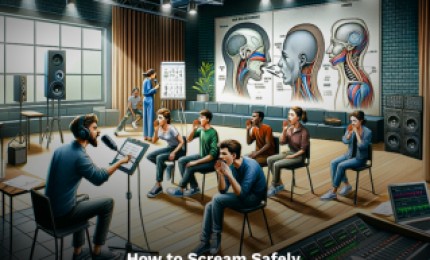Rejection is a fact of life in the entertainment industry. For every audition that leads to success, many more don't result in a callback. If you're aiming to carve out a career in this highly competitive arena, learning how to handle rejection effectively is essential. It’s not just about coping; it’s about understanding that each 'no' can be a step toward the ultimate 'yes'.
Rejection can hit hard for actors, musicians, dancers, and other creatives who pour their hearts and souls into their craft. When you audition, you’re not just performing; you’re sharing a part of yourself. That’s why rejection can feel so personal and painful. Yet, it’s crucial to understand that being turned down isn't an indictment of your talent or value. Instead, it’s often just a result of the industry's complex dynamics of demand and supply.
Casting decisions are shaped by a wide range of factors that go beyond mere talent. Elements like physical traits, the director’s specific vision, or the chemistry with other cast members all play a role. Sometimes, it simply boils down to whether you fit the specific needs of the casting director’s vision for the ensemble—like a puzzle piece that needs to match perfectly with the others to complete the overall picture.
The continuous flow of rejections can significantly impact mental health. Actors and performers, who often invest deeply in their personal expression, are especially susceptible to feelings of insecurity, anxiety, and depression when faced with repeated judgments. It's crucial, therefore, to build strong mental resilience to navigate these challenges effectively.
Therapists often suggest that performers should reframe their perspective on rejection. Rather than viewing it as a personal failure, it can be seen as a necessary step towards the right opportunity. Every 'no' is one step closer to a 'yes' that will be more suited to one's skills and career path.
Piya Valecha opens up about the challenges of working in the entertainment industry. "It's definitely tough, and waiting for the right role can make it even harder," she reflects. Having put years of effort into her craft, Piya is now selective about the projects she takes on, seeking roles that truly spark her interest. This search has required patience and perseverance. She recalls a particularly difficult moment when she was about to sign on to a project, only to lose it because she lacked experience in that specific medium. Despite these setbacks, Piya remains resilient. "I have the willpower to overcome these challenges, and I don't let rejection get me down," she says. Piya acknowledges that not everyone can shrug off rejection so easily, and she sees the toll it takes on many in her industry.- Source
Reflection and Response: After receiving a rejection, take time to reflect on the audition. Assess any feedback given and plan targeted improvements.
Maintain Perspective: It’s important to remember that rejection is not always due to performance but may be about specific requirements or visions that the director or producer has in mind.
Stay Healthy: Mental and physical health can directly impact one’s performance and outlook. Regular exercise, a balanced diet, adequate sleep, and mental health care are essential.
Set Goals: Setting short-term, achievable goals can provide a sense of control and accomplishment that mitigates the feeling of rejection.
Adopting these strategies can transform the daunting experience of rejection into a constructive part of your career development, allowing you to approach each opportunity with resilience and renewed vigor.

"Revolutionizing Performer Jobs Through Technology" In today’s digital age, the entertainment industry has transformed significantly, shifting from traditional in-person auditions...
Read Blog
So, you want to be an actor? Maybe you've dreamed about seeing your name in lights since you were a kid, or perhaps you've recently discovered a passion for performing. Whatever your reasons,...
Read Blog.jpg)
The film industry is undergoing a transformative shift with the integration of artificial intelligence (AI) in movie production, stirring both innovation and controversy. Recent films like Late Night...
Read Blog
Safeguarding Your Voice During Intense Acting Roles Acting roles demanding extensive screaming bring significant challenges to vocal health. While portraying high emotional stakes can be rewarding...
Read Blog
As the film and television industries continue to grow rapidly in major U.S. cities like New York City, Atlanta, and Chicago, an increasing number of theater actors are exploring opportunities to...
Read Blog
Memorizing lines for an audition frequently raises questions among actors. While the query might seem straightforward, the appropriate response is layered and complex. Understanding Audition...
Read Blog